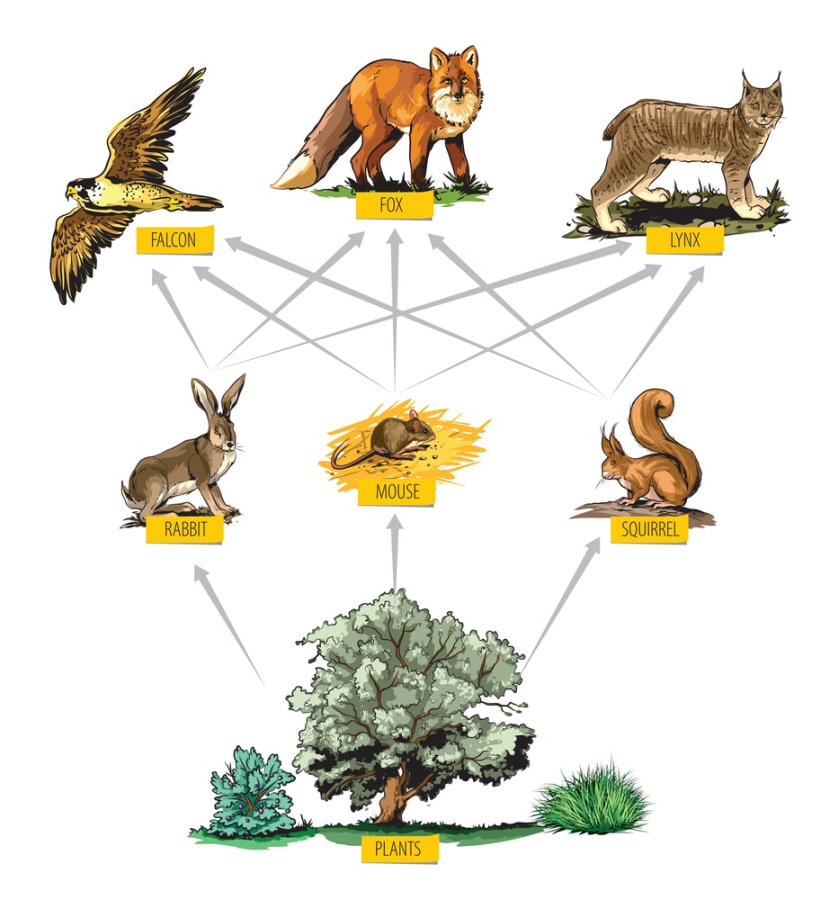What Do Rabbits Eat In The Wild?
Rabbits are herbivorous animals that primarily feed on plant material. In the wild, their diet consists mainly of grass, leaves, and other vegetation. Let’s explore in more detail what rabbits eat in their natural habitat.

1. Grass
The grass is the staple food for rabbits in the wild. They consume various types of grasses that grow abundantly in their habitats. Rabbits are adapted to efficiently digest fibrous material like grass. The high fiber content in the grass helps maintain their digestive system and ensures healthy gut function.
2. Leaves and Twigs
Rabbits also feed on a variety of leaves and twigs from different plants. They particularly enjoy eating young, tender leaves as they are easier to chew and have a higher nutritional value. In the wild, rabbits will browse on leaves and twigs from trees, shrubs, and other plants.
3. Herbs and Weeds
Wild rabbits have a diverse diet that includes various herbs and weeds. They actively seek out these plants to supplement their nutrition and add variety to their diet. Some common herbs and weeds that rabbits eat in the wild include dandelions, clover, chickweed, and plantain.
4. Bark and Tree Sap
During the winter months when other food sources are scarce, rabbits may resort to eating the bark of trees. While not their preferred food, the bark provides some essential nutrients and helps them survive during harsh weather conditions. Additionally, rabbits may also consume tree sap as a source of moisture.
5. Fruits and Vegetables
In certain seasons, rabbits in the wild may come across fruits and vegetables. However, these makeup only a small portion of their diet. They may consume berries, apples, and other fruits if they are available in their habitat. It is important to note that rabbits have a sensitive digestive system, and too much fruit can cause digestive issues.
6. Wildflowers and Seeds
Rabbits have a particular fondness for wildflowers and seeds. They enjoy nibbling on the stems and flowers of various wildflowers, contributing to seed dispersal in their natural environment. Seeds, such as those found in grasses and plants, provide an additional source of nutrition for rabbits in the wild.
FAQs
1. Can wild rabbits eat carrots?
Contrary to popular belief, wild rabbits do not typically eat carrots. While carrots are safe for rabbits to consume, they are not a natural part of their diet in the wild. Carrots are high in sugar and should only be given to rabbits in moderation, whether they are domesticated or living in the wild.
2. What is the importance of fiber in a rabbit’s diet?
Fiber is crucial for a rabbit’s digestive health. It helps maintain proper gut motility, prevents hairballs, and reduces the risk of gastrointestinal problems. A lack of fiber can lead to serious health issues, including intestinal blockages. In the wild, rabbits obtain a high-fiber diet from grass and other plant material they consume.
3. Are there any plants that are toxic to wild rabbits?
Yes, there are several plants that are toxic to rabbits and should be avoided. Some examples include foxglove, hemlock, yew, and nightshade. Wild rabbits have evolved to recognize and avoid these poisonous plants, but accidental ingestion can still occur. It is important to be aware of the plants in your area and take necessary precautions to prevent rabbit exposure to toxic plants.
4. How do rabbits find food in the wild?
Rabbits use their strong sense of smell and excellent vision to locate food in the wild. They are highly adaptive and can quickly identify the presence of edible plants in their environment. Rabbits often rely on their keen senses to detect the presence of food sources, helping them survive and thrive in various habitats.
In conclusion, wild rabbits have a diverse diet that primarily consists of grass, leaves, herbs, and twigs. They also consume bark, tree sap, fruits, and seeds when available. It is important to understand and respect their natural feeding habits when caring for rabbits, whether they are domesticated or living in the wild.
Related Articles…
Copyright Notice:
This website utilizes images found online, all copyrights are retained by their original owners. If you would like an image removed, kindly contact us.